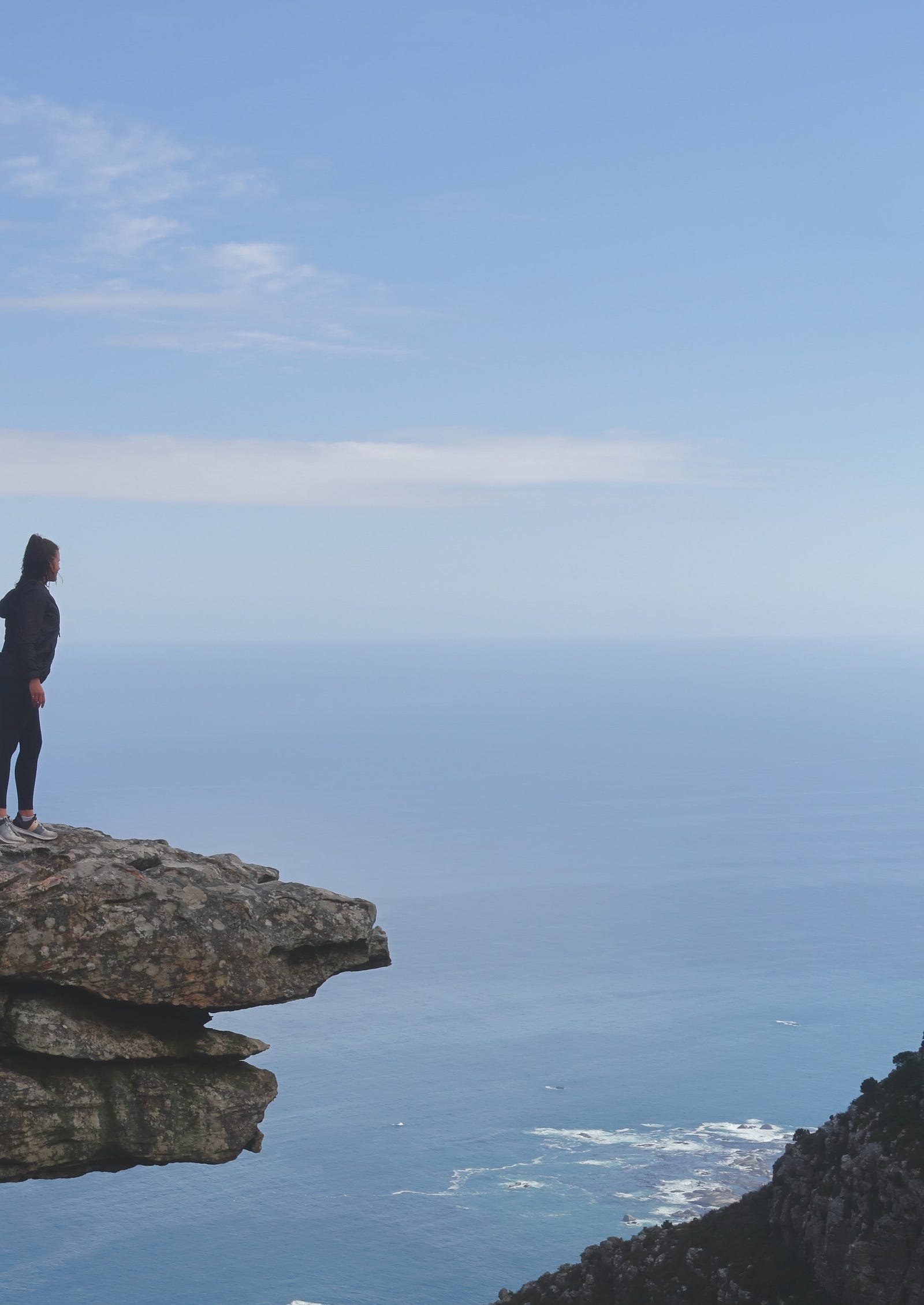Am I Outsourcing My Memory?
One Picture is Worth a Thousand Words
A photograph tells us infinitely many details about a split second in an incredibly specific space in time. If a sports photographer waits an extra second, they’ll likely capture an entirely different scene. If an editor crops the captured space, they can change the entire story that a picture originally told. For example, take a look at this inspiring photo of a young woman looking out at the ocean:


This photo is actually cropped, and it tells a completely different story from the original:


The same is true for any snapshot in time. The accuracy of cameras predispose people to assume that pictures can’t lie, but even photographs aren’t free from slight subjectivity. Though a picture is worth a thousand words, those words are heavily dependent on the time and space that was captured.
Pictures Help Jog My Memory
If you have ever been on Facebook, Snapchat, TimeHop, Google Photos, Apple Photos, or most photo taking apps; you’ll notice that new features have attempted to harness countless photos into a pseudo-photo-diary. “Remember this day” prompts users to look back at photos they took years prior, a nostalgic tribute to snapshots in time.
The general audience, myself included, might think that all of these apps help promote memory. There’s no way I would have remembered what I ate for lunch on October 16th, 2014 if my Google Photos Assistant didn’t patch my fleeting memory. Or how about that group shot from a family vacation during my childhood? That moment would have been lost in time if it hadn’t been captured! There is no denying that photos can stimulate memory. There have even been cases where patients with Alzheimers used photos to patch the holes of withering remembrances.
At this point, it seems like photos and memory work together. As the mind ages and minute details are lost in our personal accounts of the past, pictures act as a secondary storage space. We’ve almost created a virtual hippocampus with the ability to upload experiences we don’t want to forget as pictures in the cloud.
Could it be possible that the act of taking pictures is actually harmful to memory?
In a recent study, this was said to be true. Participants on a guided tour of an art museum were directed to either take photos or visually observe pieces in the exhibition. The results showed the photo-taking-impairment-effectto be true. This effect explains how the act of taking a photo causes people to pay less attention to the moment, because they are more focused on taking the picture. In the study, people who were instructed to take photos of the exhibit remembered significantly less about the art than those who experienced it traditionally.
“Sometimes I don’t [take a photo]. If I like a moment, for me, personally, I don’t like to have the distraction of the camera. I just want to stay in it.” — Sean O’Connell (The Secret Life of Walter Mitty)
Travel to Machu Picchu, gaze at the Eiffel Tower, or drive to Niagara Falls; you’ll see the same thing. Crowds of people, looking at their phone screens. Now seems to be the appropriate time to ask, when did the camera phone switch from reinforcing memory to inhibiting it?
What began as an extension of limited mental databases slowly evolved into an unintended crutch that detracts from experiencing things in the first place. Someone might look at a selfie from their time at Niagara Falls, but what memory would that spark? The memory of looking at the phone screen to take the photo at Niagara Falls? If humans can ask their phones about the details of their lives, like what they ate for lunch on October 16, 2014… is there even a need for memory?
“Part of this outsourcing of memory, it’s not a stupid thing to do. It frees us up to pay attention to the next thing that’s happening. But if we live our lives constantly click click click click [with our cameras], going from one experience to the next, we’re never stopping for the moments that we want to cherish and remember.” — Linda Henkel, Professor of Psychology in Memory Errors & Distortions
I have vague memories of a high school self that uploaded hundreds of photos and dozens of albums to social media sites in hopes that my future self would thank me. Every picture I took and uploaded was one less memory my own brain was hindered with. Looking back, I can honestly say that without the aid of these photos, most of the memories they captured would be lost in time.
When I was a teenager, my photo upload rate was inversely proportional to the hours I spent journaling. As I took more photos, the need to write down my experiences steadily declined. While my written journal entries from my childhood were raw and real, these social media albums weren’t nearly as accurate a depiction of reality. Each picture incites a memory, but a snapshot of my face would never be able to portray the true emotions that were hidden behind a smiling pose.
It seems like there is a small tipping point. On one side, photos can ignite details in the brain that would have otherwise been lost forever. Conversely, the act of taking photos can diminish memory and detract from experiencing the life that humans initially sought to remember. Apps are redefining the meaning of nostalgia, but at what cost? Are petabytes of photos worth a life seemingly less lived? Should parents put the camera away and look at their kids in the eyes instead? Is visiting a place worth it if the end goal is nothing but a picture?
Am I outsourcing my memory? Or am I just hurting it?
